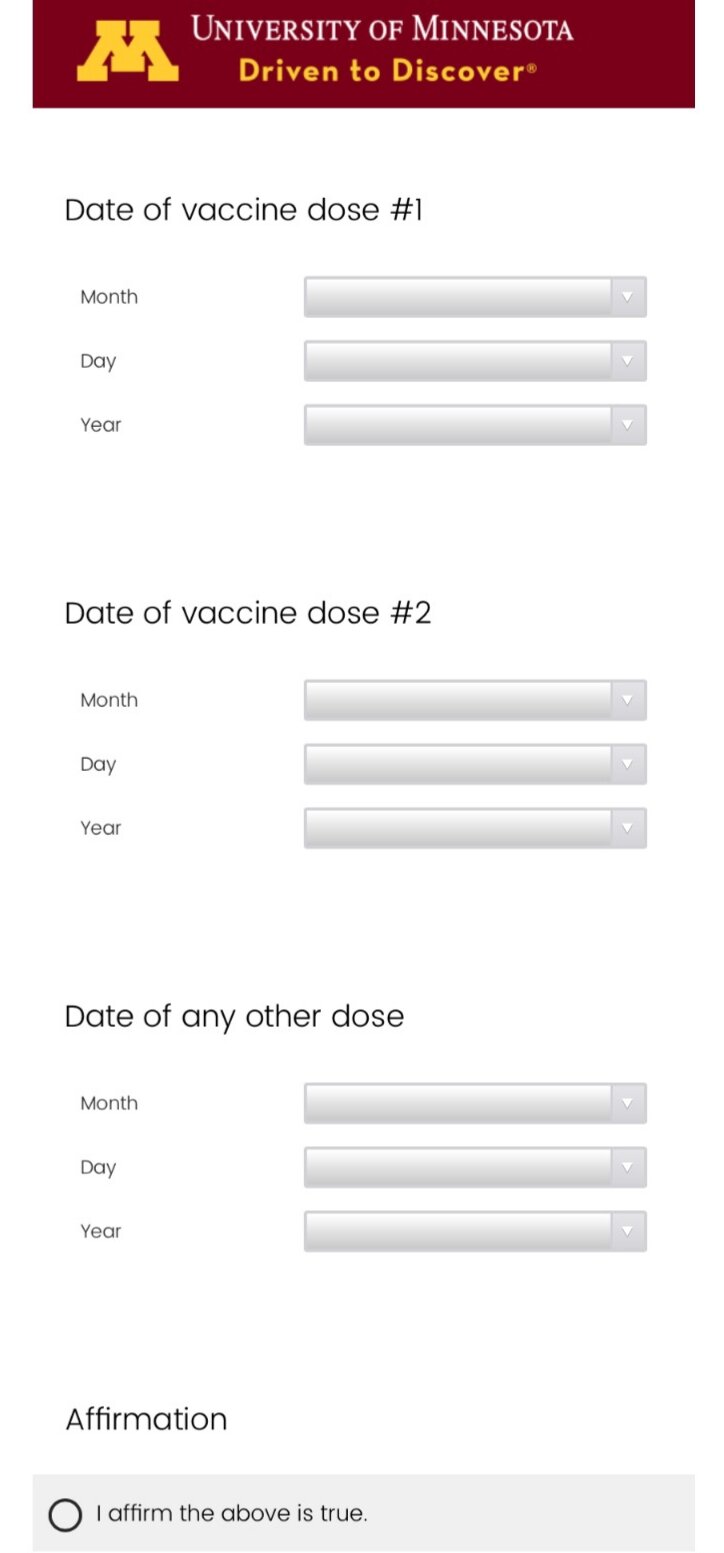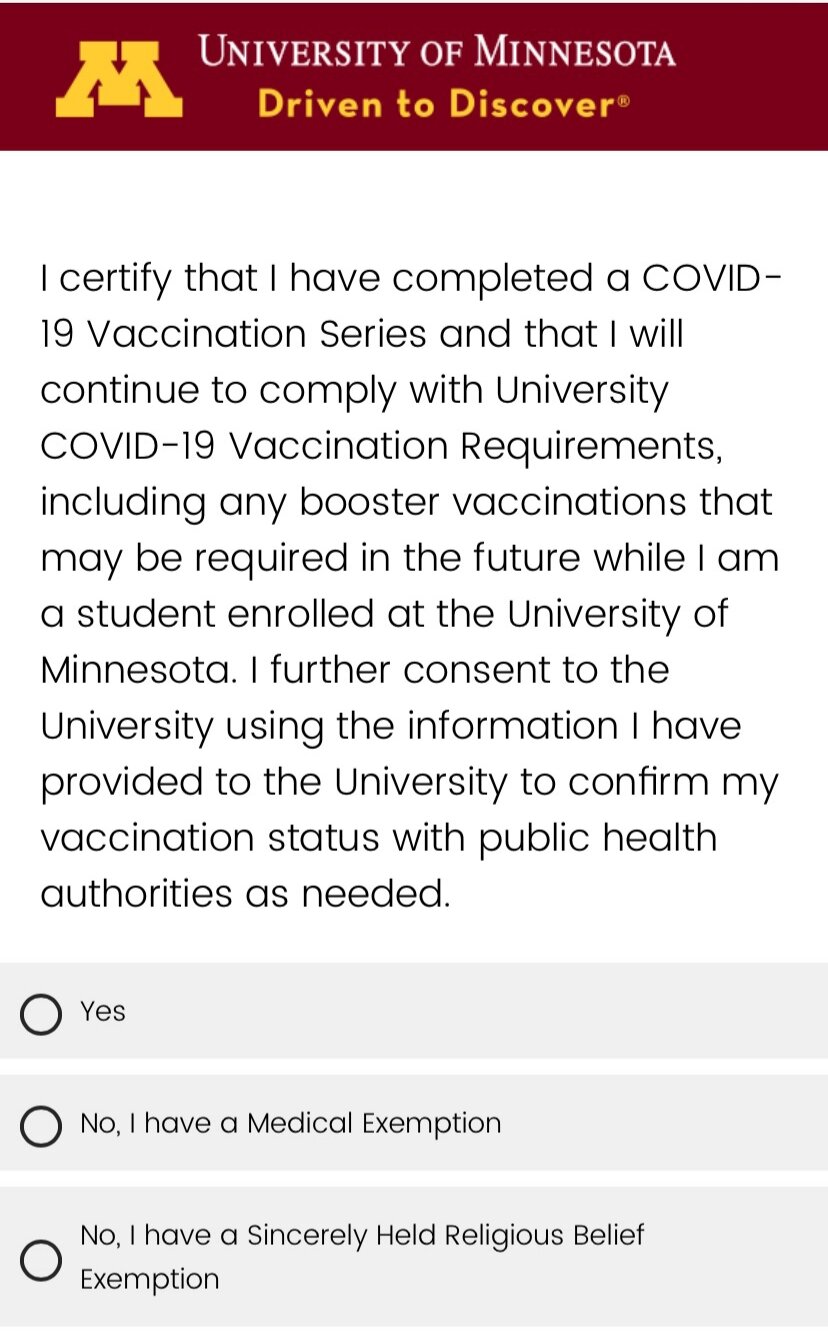Faculty and staff frustrated with UMD COVID-19 safety protocols
Over 600 faculty and staff members from across the University of Minnesota System expressed their frustration with the steps being taken to combat the ongoing COVID-19 pandemic in a letter to system President Joan Gabel dated August 30.
UMD staff were among those who expressed their concern. Andrea Sande is an executive office and administrative specialist at College of Arts Humanities and Social Sciences and president of the local AFSCME 3801 union of UMD clerical and technical workers. A major concern that Sande noted was a lack of flexibility for a professor choosing the modality of their class and staff forced to work all 40 hours a week on campus. Over 80 percent of classes at UMD are taught in person.
“We’re putting family members who are unable to be vaccinated or are maybe immunocompromised, we’re putting them at risk and having to choose between having to pay a mortgage and buy groceries and possibly making someone ill or die in our family,” Sande said. “And it’s unnecessary.”
Dr. Amy Heitapelto — Interim Executive Vice Chancellor for Academic Affairs — spoke about the current system in place for deciding a class’s modality, stating that many strategic decisions were made at the beginning of the semester.
“The course is set up ideally for the modality that makes the most sense for the course...” Heitapelto said. “We try to be responsive during the pandemic as it has evolved.”
Laure Charleux, UMD Geology professor and contract administrator for the University Education Association (UEA), the union that represents faculty on campus, adds that they don’t feel the university is taking the pandemic seriously enough.
“We have the sense that we’re not protected,” Charleux said. “Our family members are put in harm’s way, by the university's lack of concern for the well being of their employees.”
Current university protocol, under the “Work. With Flexibility” plan, dictates that any long-term modality switch must be approved by leadership.
Sande expressed that a key issue that staff have with the COVID-19 situation at UMD lies in campus testing capacity.
“I think our biggest concern that we share is the lack of testing and the lack of availability of testing,” Sande said. “There needs to be on campus testing available to students, faculty and staff at no cost with quick results.”
Currently tests are offered at UMD Health Services, but appointments are necessary and there is a priority system in place as to who gets tests first.
Sande added that the lack of campus testing being done makes UMD’s data on the spread of COVID-19 an unreliable gauge of transmission. Maintaining testing availability on campus is an important part of adhering to Minnesota Department of Health guidelines.
Staff and faculty agree the UMD Safe Campus Dashboard doesn’t provide a clear indication of COVID-19 cases on campus, as it only displays tests taken at UMD’s Health Services or self-reported by students to the Minnesota Department of Health. Dr. Lisa Erwin — Vice Chancellor for Student Life and Dean of Students at UMD — spoke about the integrity of UMD’s COVID-19 data.
“The dashboard portrays the number of positive cases in Health Services that are results of tests that are reported to them, so I’m confident that’s accurate,” Erwin said. “Is it comprehensive, perhaps not.”
The employees also stated that they were concerned about the way the vaccine mandate was being handled, with students and faculty and staff needing only to enter in vaccination dates rather than show proof of vaccination.
Additionally, faculty and staff who are not vaccinated can agree to weekly testing instead of the shot. However, according to the HR workplace guidance, those doing the weekly tests do not have to share the results. Additionally those saying they are fully vaccinated do not need to verify that claim.
“The idea is it’s founded on trust, and that is, from the experts at the system level, the best way to approach this,” Erwin said. “We’re hearing that schools who are requiring uploads of cards are also facing similar issues.”
Heitapelto left concerned parties with words of encouragement.
“We really do care about the safety of all of us,” Heitapelto said. “We continually try to navigate that while also protecting privacy concerns.”


